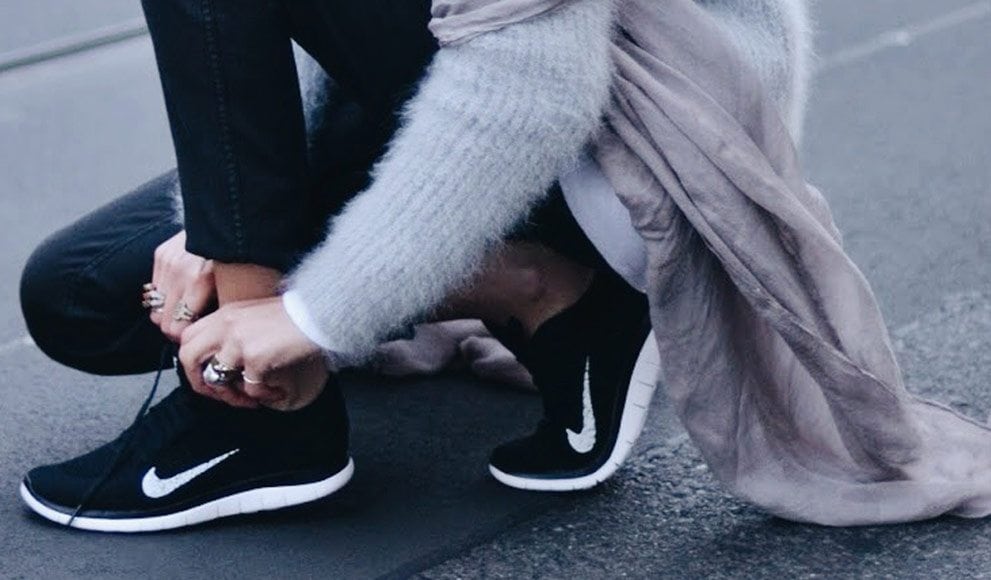What is an average day in the life as the junior buyer at Stylerunner?
Working for a start-up it’s all hands on deck – and being one of the first employees from Stylerunner’s early days I’m constantly working across all areas of the business. An average day for me could consist of coordinating and styling photoshoots, going to showings and meeting with suppliers, placing orders, looking at sell-throughs, range planning and working with the marketing team among an array of other tasks.
A lot of people have the perception that buying is all glamorous, playing with clothes and going to showings, which part of it is but most of it is more numbers and analytics.
You constantly have to keep your finger on the pulse of the activewear market and fashion world – you need to live and breathe all things Stylerunner. When I leave the office I’m still thinking about what the customer wants, researching new brands and trends. I spend a lot of time on Pinterest and Instagram looking for inspiration. We actually have a group thread where our buying teams share ideas 24/7.
Did you intern, study or gain work experience in the industry, if so where?
I interned at an ecommerce fashion retailer two days a week while studying a B.Commerce at Uni and also volunteered at Fashion Week to gain more industry experience. Although, I learned 90% of what I know from being resourceful, my amazing mentors/bosses and working my butt off!
How does the buying process work?
Basically, we will go to a showing and be presented a range, we then pick out pieces that we think our customers will like, take photos, try pieces on and make notes. The buying team will then discuss the collection and key pieces within the range as well as trends. We will then look at historical sales data, size skews and breakdowns in order to forecast and place our budget.
If you have a great sense of personal style, will this naturally transgress into being a great buyer?
Buying involves a lot of analysing and number crunching.
Having a great sense of personal style is only one part of the equation; you need to be a good negotiator, a logical thinker, a gun at excel and have confidence in what you’re doing.
Which is your stronger skill: logic or creativity?
I’d like to think I have a good balance of both but my creative side comes out quite a bit which is essential when working for a start-up.
How many weeks is a range available for online?
We aim to move a range in four weeks with the exception of odd sizes, which will remain until they sell out.
What are some important considerations when placing your buy?
Forecasting trends and reacting to changes in demand within the market are both important aspects of buying. With that in mind, you really need to consider your customer. You need know who your customer is, what they like and ultimately what they want because without them you have no business!
What advice would you give to a young people developing their resume to gain a role in buying?
Learn excel inside and out and intern as much as you can even if it’s not in the exact area you want to gain experience in – skills are always transferrable.







